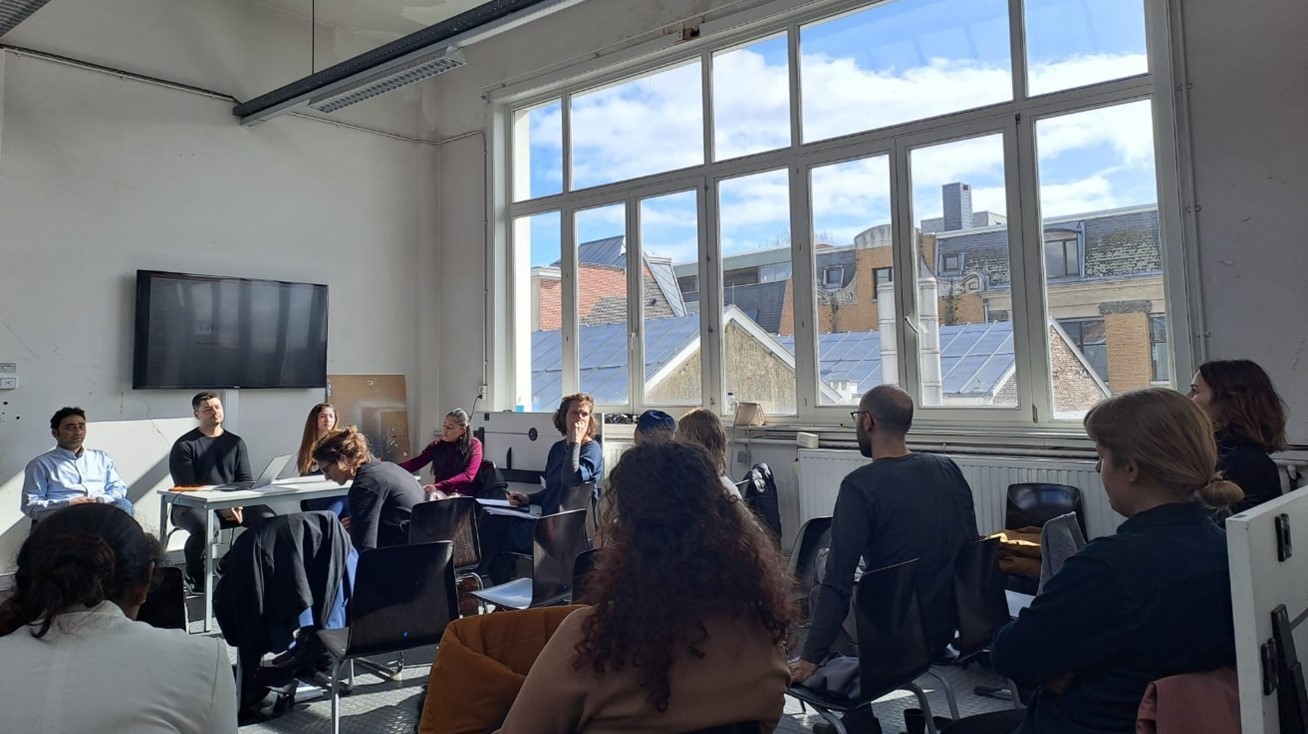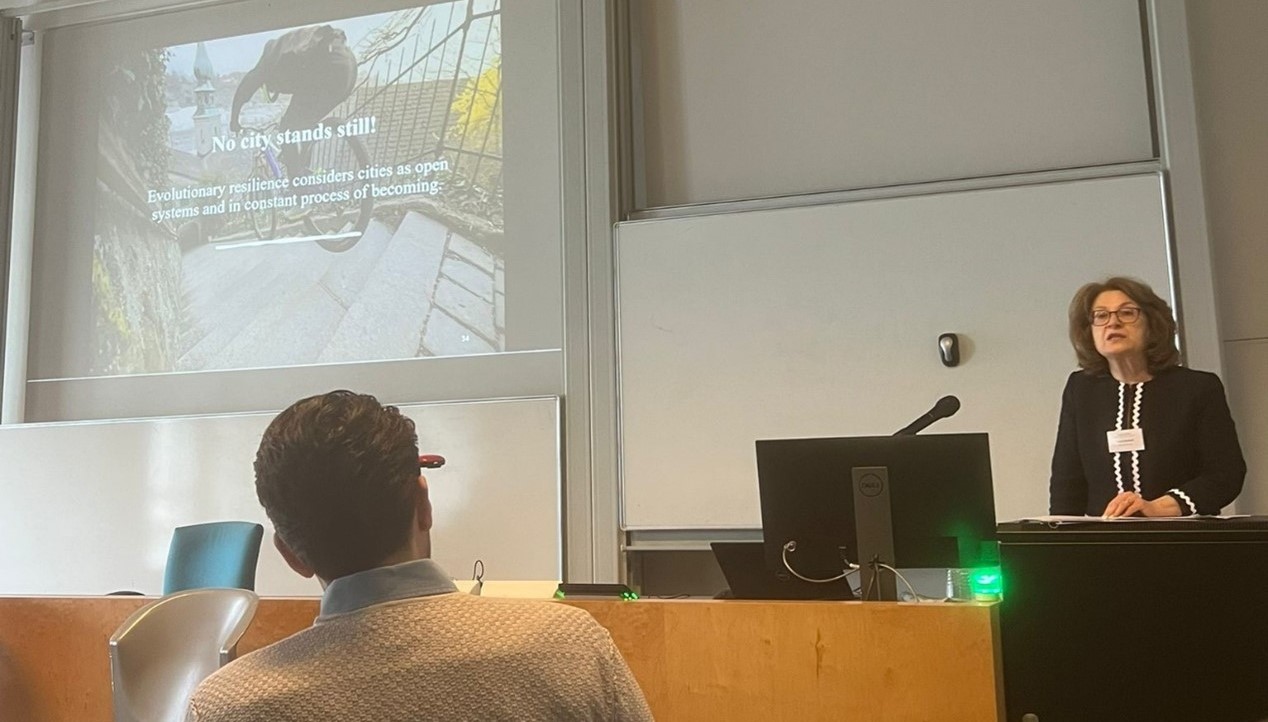Planning for Action: Making sustainable transformations of cities and territories happen
17th AESOP Young Academics Conference Antwerp, 2023
Our PhD student, James Vandenberg, presented his working paper, “Assessing the Resilience Capacities of Urban Food Systems: A multi-dimensional framework to enhance urban governance,” in Theme 3 of this year’s annual conference of the Association of European Schools of Planning Young Academics (AESOP YA), along with 40 PhD students and post-docs.
The Sustainable Transformations theme emerged from the recognition of the rapidly changing world that is being challenged by a range of intersecting phenomena, including climate change, growing urban populations, migration flows, technological disruptions, and digitizing economies. These changes, which are further complicated by the Covid Pandemic and the Russia-Ukraine Conflict, illustrate how the impact of local events can ripple across national and international scales, resulting in unexpected consequences.
Therefore, the Planning for Action conference aimed to highlight the interdisciplinary nature of sustainability transformations, and the critical role of spatial planning and urban design. More specifically, the Conference included 5 main Tracks (see below), that incorporated presentations on a diverse range of topics such as housing, mobility, health, environmental conservation, participatory planning and more.

The 5 Conference Tracks:
- Upscaling and delivering sustainable transformations: Implementation and governance
- Flows of people and goods: Active and inclusive mobility in cities and territories
- Healthy and resilient cities and territories: Impact and design
- Complex and unpredictable cities and territories: Planning approaches and institutions
- Action-oriented research to make sustainable transformations happen: Research methods
The combination of these Tracks aimed to emphasize the importance of formulating a harmonious relationship between people and nature, and reinventing many societal structures to ensure they embrace complexity through cooperation, scenario planning, and continuous adaptation. Argued by many attendees, was that only, when collaborative bonds are formed, can transformative sustainability practices be holistically integrated.
Among the different Tracks, a few common themes emerged, one of which, was the importance of utilizing transdisciplinary and participatory methods which bring together not only academics, experts, governing bodies, and the private sector, but also, actors from civil society with diverse backgrounds and experience. As eloquently explained by keynote speaker Oswald Devisch, Associate Professor in Urban Design, in order to more fully encapsulate the complexity of urban phenomena and their drivers, of which were highlighted in keynotes by Simin Davoudi and Tom Daamen, urban planning, design, and research, must strive to incorporate a diverse range of perspectives. Such inclusivity has the potential to ensure a contextually driven, needs and value-based development processes unfolds.
However, various questions were raised which highlighted the sense of urgency sweeping through society. More specifically, participatory methods, such as constructing a cohesive and trustworthy ‘collective’, and producing meaningful results, can take years. Contrarily, as climate change issues increase in frequency and intensity, there is a growing demand, and need, for ‘fast’ solutions. While both arguments have merit, it is important to remember that quick fixes, which fail to properly consider the system and its dynamics as a whole, may lead to ‘doing the wrong thing right’, and in turn, cause more issues, rather than solve them


Outreach
-
Conferences
An overview of the various conferences our group has hosted and participated in, with topics varying from sustainability transformation to resilience & spatial planning. -
Media
Interviews, videos, podcasts and blog articles help to inform the interested public about our commitment. -
Publications
Here you will find a selection of publications by members of the Urban Studies working group. -
Workshops
Check out the various workshops our group has hosted or participated in, the various methods used, and intriguing topics covered.

